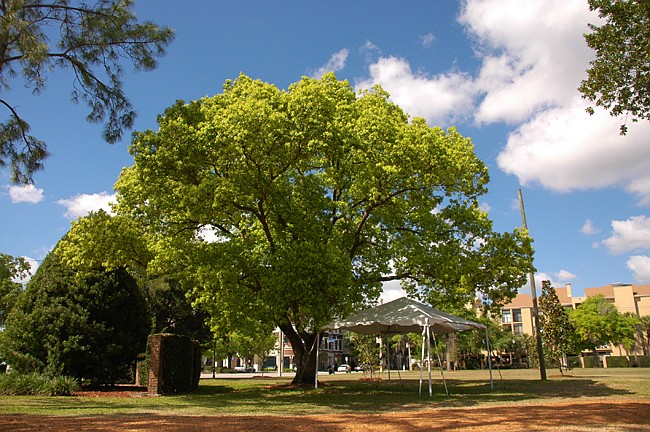- April 18, 2024
-
-
Loading

Loading

Homeowners and builders wishing to remove trees on their property may be looking at a bigger incentive to replant new trees, if recommended changes to the City Tree Preservation Ordinance are approved.
Tree removal permits, the financial compensation for tree removal, the penalty for unpermitted tree removal, use of tree replacement funds and the removal of hazardous trees were all up for discussion at the Winter Park City Commission meeting on July 23.
The Tree Preservation Board’s first recommendation is to clarify when tree removal permits are required. A provision declaring that trees that have been damaged or have fallen over due to nature decay, a fire or storm do not need a permit to be removed.
Once a permit to remove a tree has been issued, then either an approved replacement tree is to be planted or a monetary compensation based on the measured inches of the initial tree removed is to be paid to the tree replacement trust fund.
“The gist of this requirement is meant to be an incentive to actually cause the replanting of more trees than our current ordinance,” said George Wiggins, head of the city’s building and code enforcement department.
Current compensation requirements are based on the diameter of the tree. Trees are ranked into three classifications – a protected tree, a specimen tree or a historical tree – based on their diameter and the compensation varies between the classifications. Currently, the removal of a specimen tree, which is any tree between 24 inches and 48 inches in diameter, would result in a compensation of a 2-inch-to-1-inch ratio of replanting in trees or a $110 per inch payment into the tree replacement trust fund. The ratios for replanting and payment vary among the classifications.
Commissioner Carolyn Cooper said that the lower compensation for cutting down trees compared to before was too much of a change.
“I agree our code before was too steep, but now I fear we’ve swung the other way,” she said. “That sounds like a huge difference in the amount of compensation.”
Commissioner Steven Leary said that he’d rather see an incentive program than simply modifies a punitive system.
“We need to be clear on the difference of less punitive versus incentivizing them,” Leary said. “Whipping them less is not an incentive. If I planted a tree, and it’s leaning over my child’s bedroom, and now it’s 24 inches, and I want to take it down, now I have to pay a fine? That’s absurd to me. We need to try the olive branch instead of the stick on this.”
The Tree Preservation Board is aiming to simplify the compensation requirement by making a general minimum of replacement per classification.
“This greatly simplifies it for homeowners or builders that are having to obtain a tree removal permit,” Wiggins said.
The choice to make a financial compensation or a combination of replanting and financial compensation will still be available.
Wiggins said that based on the changes to the ordinance, the financial compensation would be quite a bit larger than just replanting, and thus there is the incentive to just replant trees.
Winter Park resident Nancy Shutts does not see the possible changes as an incentive and disagrees that there should be fines and fees for her own property in the first place.
“The canopy is extremely important to our community, but I think that the city should be involved in the right of way in the parks and not what residents do in their yard,” Shutts said.
She explained a curiosity as to why she would have to ask permission to take down a tree.
Shutts’ husband, Tom Shutts, added, “Or better yet, why do I have to replant a tree?”
The goal, Wiggins said, is to ensure that the canopy that the city of Winter Park enjoys would not dwindle after approved removals.
“It’s so that trees aren’t just being removed without adding anything back,” he said.
If a tree removal permit has been issued, then the homeowner or builder may choose between the replacement or compensation. But if a tree removal permit is denied by the Tree Preservation Board, the homeowner or builder may still ultimately remove the tree after a 60-day period and after a written notification of intent but will pay a penalty. The tree preservation board has recommended that the penalty to be paid for the unpermitted removal be based on the same requirements as the financial compensation for permitted removals.
The usage of the tree replacement trust fund is also under consideration for changes. The board moved to allot funds for educational purposes rather than purchasing services for the city’s tree nursery, which no longer exists. Another recommendation suggests that the funds should no longer be used for the enforcement of the ordinance.
“We evaluate the tree care as to being a public safety issue or just being a manicure for their trees,” Wiggins said. “If there is a public danger of a big dead limb hanging over a street, we take care of it.”